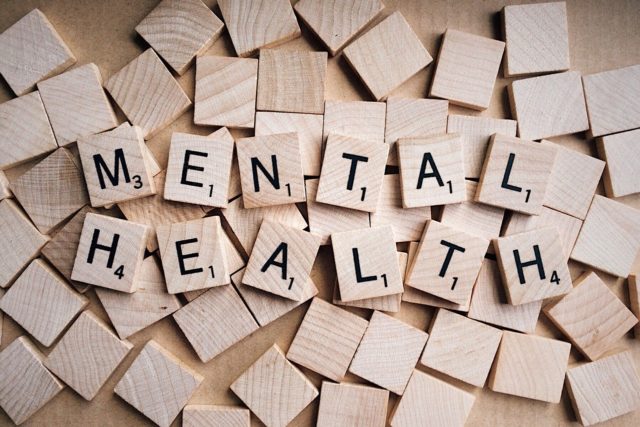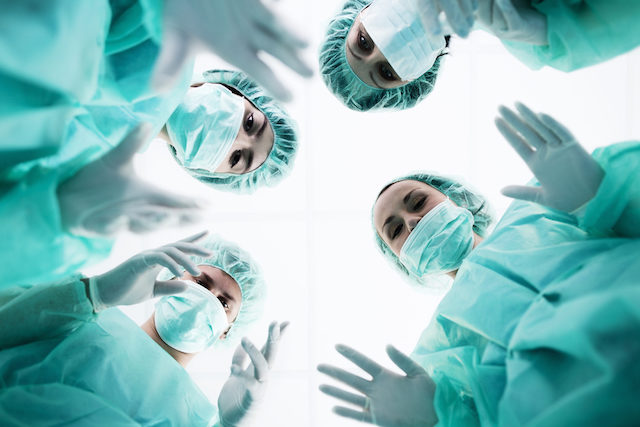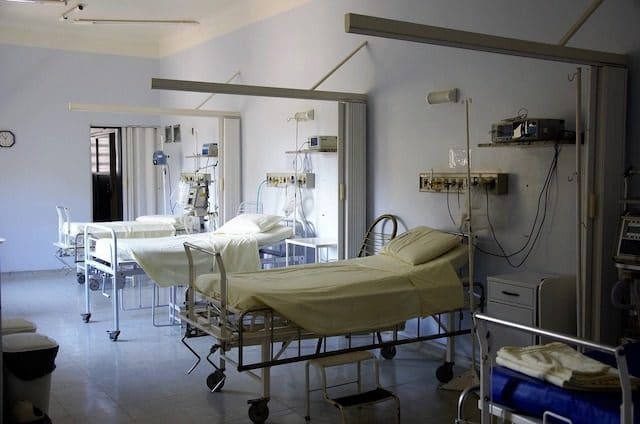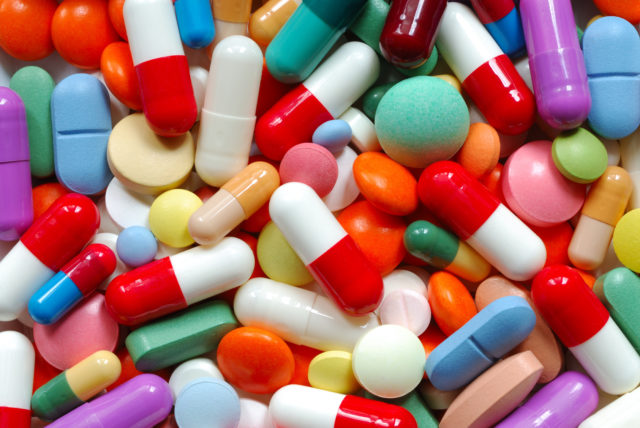Medical practice. Understanding medicine would seem to make us feel more secure, but the reality is a little shocking. In this time of increasingly globalized health concerns, knowledge about the dark side of the medical field is also spreading. In this account, learn why a doctor forgetting more than their lunch or a hospital cyberattack may be worse than the disease, and discover just how gruesome some rather “back to nature” treatments involving tiny creatures can get.
9. Mentally Health Professionals Kill Themselves More

It is tragic. It is shocking. And it is, unfortunately, true. Mental health professionals have a notably high rate of suffering the problems they either treat, or attempt to treat, themselves. The most disturbing statistic? Psychiatrists are more likely to commit suicide than “normal” (average) people.
Even worse, mental health professionals might seem to be just a step away from the right medication or counseling should they need it, but the opposite is true. The healer needing to “heal thyself” seems to present a care accessibility problem. Among those working in mental health care, psychologists are especially bad at self-monitoring for mental health issues or watching out for their co-workers.
8. Doctors Leave their Tools in People

Ever left a jacket in a restaurant? Left your coffee cup at the bank? Left your scissors at a friend’s house? If yes, congratulations, you are normal. Forgetful at times, like all of us. But take this all too human habit into a medical context and the results can be catastrophic. To put it bluntly, the statistics say medical staff sometimes leave their tools or other foreign objects ranging from scalpels to sponges inside patients and then sew them up after surgery.
This happens a lot more than you might imagine. Cases numbering in the thousands, between 4,500 and 6,000, are reported annually in the United States, while Canada, for example, has seen 553 cases of foreign object abandonment between 2016 and 2018 with trends showing a rise in incidents in the country. Patients sometimes only realize there has been a terrible mistake after feeling extraordinary post-operative pain inconsistent with recovery patterns typical to the procedure they just underwent.
7. Over-the-Counter Pain Pill Dangers

Opioids and other more powerful drugs get bad press, but did you know that lots of people have died as a result of misuse or aberrant reactions to the most basic over the counter medications? Take Acetaminophen, for example. This very popular medication has become the leading factor in cases of acute liver failure and the second greatest reason for liver failure leading to transplants in the United States.
Extraordinarily dangerous reactions, like fatal skin conditions, associated with the drug include Stevens-Johnson syndrome (SJS), toxic epidermal necrolysis (TEN), and acute generalized exanthematous pustulosis (AGEP). Ibuprofen toxicity cases have also been linked to a lack of medical supervision, as they are purchased over the counter, leading to overdoses that can cause heart problems and digestive difficulties.
6. Medical Errors are a Leading Death Cause

It might come as a huge surprise to learn how imprecise the medical profession can be. While we tend to view medical research and practice, from surgery to epidemiology, as a science of great rigor backed by standards of care, medical errors are rife. So rife that medical errors are a shocking third leading cause of death in the United States. Just heart disease and cancer lead medical errors in causing more deaths in the USA, causing health activists to rightfully agitate for change in how medicine is practiced.
John Hopkins published a study that listed a death figure of 250,000 patients annually, often from seemingly senseless mistakes. For example, putting around 20 times the required dose of a substance in an IV bag. Pharmacy technicians, rather than actual pharmacists, are being tasked with many responsibilities that perhaps should require a higher level of qualification. Adding to the problem, doctors, coroners, and medical examiners tend not to identify medical errors when preparing death certificates. This is thought by some to be greatly skewing the true gravity of the medical error crisis.
5. Parasite Therapy Trials

You might think of a parasitic worm infection as the ideal definition of the time to panic and find the nearest doctor. Yet medical researchers around the world have been taking quite the opposite view of worms traditionally seen as a pestilence. Researchers have been studying the use of parasitic worms for a wide range of ailments including autoimmune disorders, allergies, and digestive afflictions.
While you might think ingesting sterilized parasitic worm eggs is gross enough, there is more. For ugly wounds, doctors have pioneered the use of sterilized maggots — yes, maggots, as in flesh-eating fly larvae — to clean up rotten flesh and promote injury and infection site healing. “Medical maggots“ have shown themselves willing to work upon their release on wound sites, swiftly removing diseased flesh while kept “focused” with the assistance of a “coral.” Gross? Definitely. Effective? Potentially quite useful in medical care. Wider adoption depends on a greater understanding of the health factor, not the yuck factor.
4. Asymptomatic Carriers

The advice might seem simple. If you have symptoms of an infectious disease, self-isolate. If you see someone sick, stay clear of them and sanitize your hands after you touch anything an infected person might have touched. For diseases like the novel coronavirus-caused COVID-19, or things as old as Typhoid Fever, it has become clear that asymptomatic carriers put public health in a quandary.
The notorious Mary Mallon, known as “Typhoid Mary,” had caused 120 cases of Typhoid, which is an infection arising from a subspecies of Salmonella enterica bacteria, while remaining a “healthy carrier.” In modern times, efforts to corral the COVID-19 outbreak have been hampered by a comparable “healthy carrier” type of problem. During the COVID-19 pandemic, a young woman without respiratory symptoms tested positive for COVID-19 and was thus the inaugural asymptomatic carrier of COVID-19.
3. People are Racist to Doctors

We might view doctors as the most highly respected people in society. After all, would you really be mean to someone you placed in charge of your health? The answer might shock you. People’s curious racial and social biases may actually exceed the fact that the person being judged made it through medical school and was trying to treat the abuser.
The problem is not only well documented, it is pervasive, with studies showing 6 in 10 American doctors have been singled out for their ethnicity or other personal attributes by the patients who are supposed to receive their help. African-American and Asian-American doctors have been the most heavily judged by patients who put prejudice ahead of qualifications, either speaking derogatorily in detail or just demanding a “white doctor.” Unfortunately, help available to medical professionals experiencing patient abuse has been shown to be very limited.
2. Painkiller Fatalities Outpace Street Drug Deaths

Cocaine and heroin may be notorious, but these drugs are not the worst out there when it comes to addiction and death despite their well earned reputation as being extremely bad for you. According to Harvard University, research statistics presented by the Centers for Disease Control and Prevention from 2007 identified painkillers of the opioid variety as responsible for double the deaths seen from cocaine and five-fold those resulting from heroin.
The problem is also growing drastically. Columbia University studies determined that there had been a three-fold increase in opioid addiction over 10 years, with double the number of medicinal opioid addicts recorded compared to the number of cocaine dependant people. Opioid addiction has become the single greatest addiction problem nationally.
1. You Could Die from a Cyberattack

Health care has been getting a huge leg up from computer technology. All manner of medical devices and operation equipment is computer based. Online programs run everything from anesthetics to painkiller delivery. Ransomware is increasingly developing capacity to interfere with doctors’ best efforts. Researchers showed that cyberattacks targeting the medical system have the ability to edit CT scan and MRI results, making tumors that are not really in the patient show up in the scan.
These tests were carried out by Israel-based researchers looking into the potential weaknesses of medical systems in response to cyberattacks. The disturbing truth is that hackers could steal patient data, mine cryptocurrency via misuse of drug delivery equipment and, worst of all, force a hospital into closure until payment of a “ransom.”